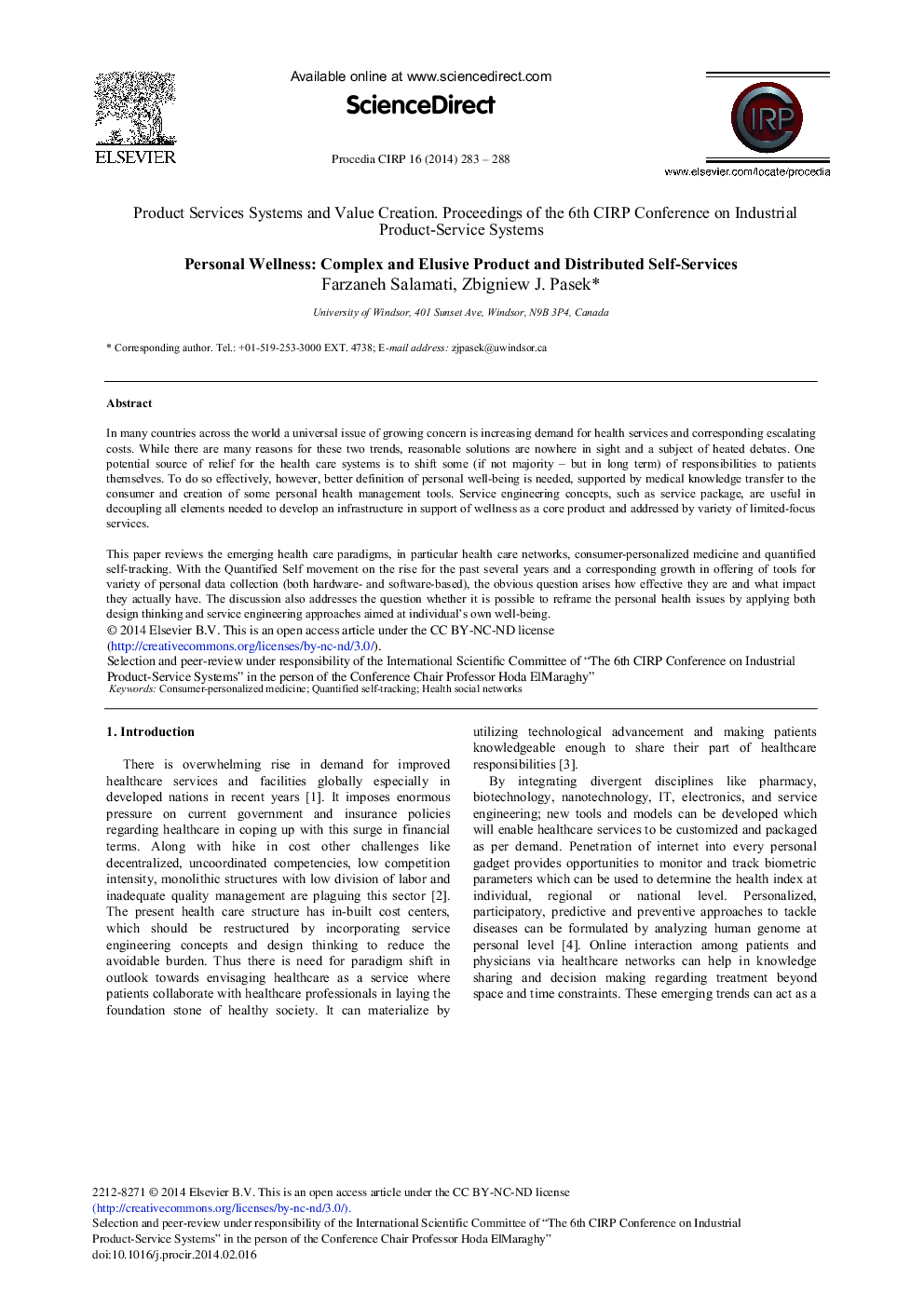| Article ID | Journal | Published Year | Pages | File Type |
|---|---|---|---|---|
| 1700734 | Procedia CIRP | 2014 | 6 Pages |
In many countries across the world a universal issue of growing concern is increasing demand for health services and corresponding escalating costs. While there are many reasons for these two trends, reasonable solutions are nowhere in sight and a subject of heated debates. One potential source of relief for the health care systems is to shift some (if not majority – but in long term) of responsibilities to patients themselves. To do so effectively, however, better definition of personal well-being is needed, supported by medical knowledge transfer to the consumer and creation of some personal health management tools. Service engineering concepts, such as service package, are useful in decoupling all elements needed to develop an infrastructure in support of wellness as a core product and addressed by variety of limited-focus services.This paper reviews the emerging health care paradigms, in particular health care networks, consumer-personalized medicine and quantified self-tracking. With the Quantified Self movement on the rise for the past several years and a corresponding growth in offering of tools for variety of personal data collection (both hardware- and software-based), the obvious question arises how effective they are and what impact they actually have. The discussion also addresses the question whether it is possible to reframe the personal health issues by applying both design thinking and service engineering approaches aimed at individual's own well-being.
